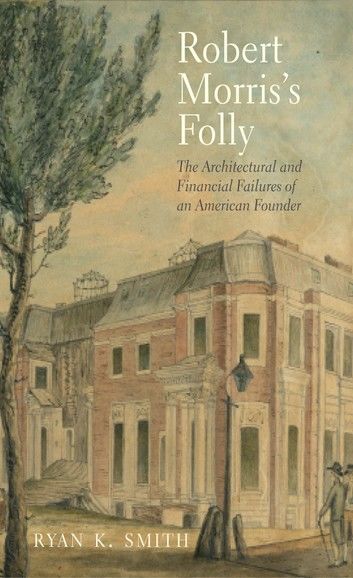| FindBook |
|
有 1 項符合
Prof. Ryan K. Smith的圖書 |
 |
$ 986 電子書 | Robert Morris's Folly
作者:Prof. Ryan K. Smith 出版社:Yale University Press 出版日期:2014-09-23 語言:英文  看圖書介紹 看圖書介紹
|
|
|
圖書介紹 - 資料來源:樂天KOBO 評分:
圖書名稱:Robert Morris's Folly
In 1798 Robert Morris—“financier of the American Revolution,” confidant of George Washington, former U.S. senator—plunged from the peaks of wealth and prestige into debtors' prison and public contempt. How could one of the richest men in the United States, one of only two founders who signed the Declaration of Independence, the Articles of Confederation, and the Constitution, suffer such a downfall?
This book examines for the first time the extravagant Philadelphia town house Robert Morris built and its role in bringing about his ruin. Part biography, part architectural history, the book recounts Morris’s wild successes as a merchant, his recklessness as a land speculator, and his unrestrained passion in building his palatial, doomed mansion, once hailed as the most expensive private building in the United States but later known as “Morris’s Folly.” Setting Morris’s tale in the context of the nation’s founding, this volume refocuses attention on an essential yet nearly forgotten American figure while also illuminating the origins of America’s ongoing, ambivalent attitudes toward the superwealthy and their sensational excesses.
This book examines for the first time the extravagant Philadelphia town house Robert Morris built and its role in bringing about his ruin. Part biography, part architectural history, the book recounts Morris’s wild successes as a merchant, his recklessness as a land speculator, and his unrestrained passion in building his palatial, doomed mansion, once hailed as the most expensive private building in the United States but later known as “Morris’s Folly.” Setting Morris’s tale in the context of the nation’s founding, this volume refocuses attention on an essential yet nearly forgotten American figure while also illuminating the origins of America’s ongoing, ambivalent attitudes toward the superwealthy and their sensational excesses.
|







![塔木德:猶太人的致富聖經[修訂版]:1000多年來帶領猶太人快速累積財富的神祕經典 塔木德:猶太人的致富聖經[修訂版]:1000多年來帶領猶太人快速累積財富的神祕經典](https://media.taaze.tw/showLargeImage.html?sc=11100697818)



